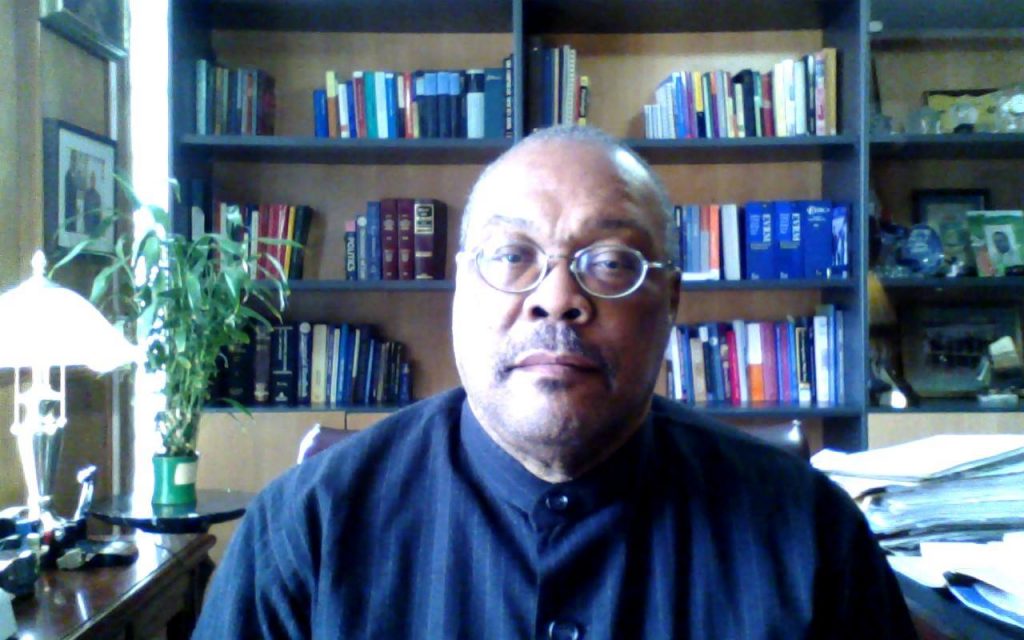Duncan: Nearly impossible to revoke a person’s permanent residence permit

PHILIPSBURG — Former Minister of Justice and Attorney at Law Roland E. Duncan says that it is nearly impossible to revoke a person’s permanent residence permit. It is difficult to send them back to their country of birth or bar them from coming back to the island. “These persons with permanent residence documents must first commit a very serious crime before they are repatriated to their home country,” Duncan said.
StMaartenNews.com contacted Duncan after the Minister of Justice, Anna E. Richardson announced to the general public in a media statement on Wednesday that the immigration laws of Sint Maarten will be strictly enforced in the coming weeks and months.
Persons who currently reside in Sint Maarten without the legal documentation are advised to take this as a warning and should start making the necessary provisions to voluntarily leave the country or run the risk of getting detained and deported to their country of origin.
The Landsverordening Toelating en Uitzetting (LTU), in English, “National Ordinance of Admissions and Expulsions” regulates the revocation of residence permits for persons who no longer meet the conditions under which their residence permit was granted and the revocation of permanent resident permits for persons who live abroad. As such, the Immigration and Border Protection Services will be collaborating with the Ministry of VSA and the Civil Registry Department to ensure that persons who are in possession of work and residence permits still meet the conditions of which they have acquired.
According to Duncan, in the case of the persons who have temporary documents, the government is only allowed to revoke documents if they have expired. He explained that it may also be difficult if the person has commitments such as bank loans to repay.
After the devastation of Hurricanes Irma and Maria in 2017, many undocumented persons decided to remain on the island, while at the same time, others migrated to the island without the proper documentation in place. With an already weakened and still recovering economy, on top of the most recent, major blow caused by the COVID-19 pandemic, job loss on St. Maarten is growing exponentially and will inevitably be the case moving forward, with numerous businesses having to close their doors or scale down their operations.
Persons without an income could possibly resort to a life of crime in order to fend for themselves and their families. Though Sint Maarten is the friendly island and welcomes all visitors, illegal activities will no longer be tolerated. As such, the first step will be the removal of our overstayed guests in order to better handle our internal affairs. Minister Richardson has taken the decision to temporarily suspend the process for first-time applicants for residence permits (exemptions will be made for persons holding critical positions) but will undergo strict scrutiny before being granted a residence permit. Also temporarily suspended are the granting of extensions for nonimmigrant stays, visas for pleasure purposes, and the process of having a guarantor.
In the coming weeks, the Ministry of Justice will be implementing a restrictive immigration policy. The intention of the restrictive policy is to make Sint Maarten less vulnerable to illegal immigration. While persons enter the country via legal ports of entry, the common practice of over-staying one’s tourist visit or visa often translates into illegal immigration. This practice has negatively impacted our economic, social, and justice systems, hence the aggressive approach by the Minister of Justice in addressing this situation.
Controls will be intensified on land and sea as multidisciplinary teams consisting of local law enforcement agencies and other various ministries will be initiated.
The Minister also plans to sit down with the French authorities in the near future to establish a better working relationship and explore the possibilities of strengthening border controls as a collective body.























